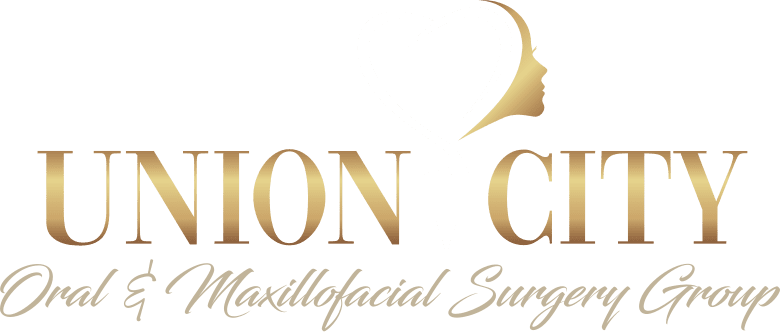As we age, many changes occur in the body, including those affecting oral health. One common issue older adults may experience is bruxism, or the grinding and clenching of teeth. While bruxism can occur at any age, it presents unique challenges for seniors. Factors such as medication use, dental restorations, and age-related wear on the teeth contribute to the complexity of treating bruxism in this population. Addressing these specific factors is crucial for managing and preventing further oral health problems.
At Union City, we recognize the importance of personalized care for older adults facing bruxism. Whether you’re experiencing symptoms like jaw pain, tooth wear, or disrupted sleep, our team is here to help you find the right treatment. With the guidance of Dr. Nancy Herbst, we focus on both addressing the symptoms and identifying the root causes of bruxism. We strive to ensure every patient receives the most effective and comfortable care, using state-of-the-art techniques and technology.
How Age-Related Changes Affect Bruxism
As people age, changes in their oral health can make them more susceptible to bruxism. A decrease in tooth enamel, for example, can lead to greater sensitivity and a higher likelihood of grinding or clenching. Older adults may also experience weakened jaw muscles or changes in their bite, both of which can contribute to the development of bruxism. These changes in the structure and function of the teeth and jaws often increase the intensity and impact of teeth grinding in older adults.
In addition to natural aging, older adults are more likely to have dental restorations, such as crowns, bridges, and implants. While these restorations are beneficial for improving oral health, they may alter the way teeth come together, potentially increasing the risk of bruxism. Poorly fitting restorations can lead to improper alignment, which may trigger clenching and grinding as the jaw attempts to adjust. Over time, this can lead to increased wear on both the natural teeth and the restorations themselves.
Another age-related factor is the use of medications. Many older adults take medications for conditions such as high blood pressure, depression, or anxiety. Some of these medications, particularly those affecting the central nervous system, can increase the likelihood of bruxism. Understanding the relationship between medication use and teeth grinding is an essential step in managing the condition for older adults.
Recognizing the Symptoms of Bruxism in Older Adults
Bruxism in older adults may present itself in several ways, some of which may be easily overlooked or mistaken for other conditions. One of the most common signs is increased tooth wear, which can lead to shorter or flattened teeth. This wear may be more pronounced in older adults due to a lifetime of use combined with the grinding action of bruxism. If not addressed, excessive wear can lead to sensitivity, pain, or even tooth fractures.
Jaw pain or discomfort is another symptom commonly associated with bruxism. This pain may be felt in the muscles surrounding the jaw, extending up to the ears or temples, and can sometimes be mistaken for headaches or ear infections. For older adults, it’s especially important to identify whether this pain is related to bruxism, as untreated jaw issues can contribute to further dental complications, including temporomandibular joint (TMJ) disorders.
Sleep disruptions are another common but less obvious symptom. Many older adults may not realize they grind their teeth at night until a sleep partner or dentist points it out. These nocturnal habits can lead to restless sleep, which can affect overall health and well-being. Identifying these signs early on is critical for preventing long-term damage and ensuring that appropriate treatments are implemented.
Treatment Options for Older Adults with Bruxism
Treating bruxism in older adults requires a comprehensive approach that takes into account both dental health and overall well-being. The use of nightguards is one of the most common treatments. These custom-made appliances are designed to protect the teeth from grinding and reduce pressure on the jaw muscles. In older adults, nightguards can be particularly effective in preventing further damage to already weakened or restored teeth.
For those whose bruxism is related to dental restorations or bite issues, adjusting the alignment of the teeth through restorative dentistry may be necessary. This might involve reshaping the biting surfaces of the teeth or replacing outdated or improperly fitting crowns and bridges. In some cases, orthodontic treatment may be recommended to correct bite misalignment contributing to bruxism.
Managing stress is another important aspect of bruxism treatment, especially for older adults. Techniques such as relaxation exercises, physical therapy for the jaw, and cognitive-behavioral therapy can help reduce the tension that often triggers teeth grinding. Additionally, reviewing medications with a healthcare provider to identify any that may be contributing to bruxism can be helpful in finding alternative treatments.
Why Choose Union City Oral Surgery Group for Your Bruxism Treatment?
At Union City, we understand the complexities of treating bruxism in older adults and the importance of individualized care. With over 25 years of experience, Dr. Nancy Herbst and our dedicated team offer a wide range of treatment options tailored to each patient’s specific needs. Our expertise in both oral health and overall wellness allows us to approach bruxism from multiple angles, ensuring you receive the best possible outcome.
If you’re struggling with the symptoms of bruxism, we may be able to help you find relief through advanced treatments and compassionate care. Our team will work closely with you to develop a plan that not only addresses your current symptoms but also helps prevent further damage to your teeth and jaws. To get started, call us at (201) 601-9262 or fill out our contact form.


